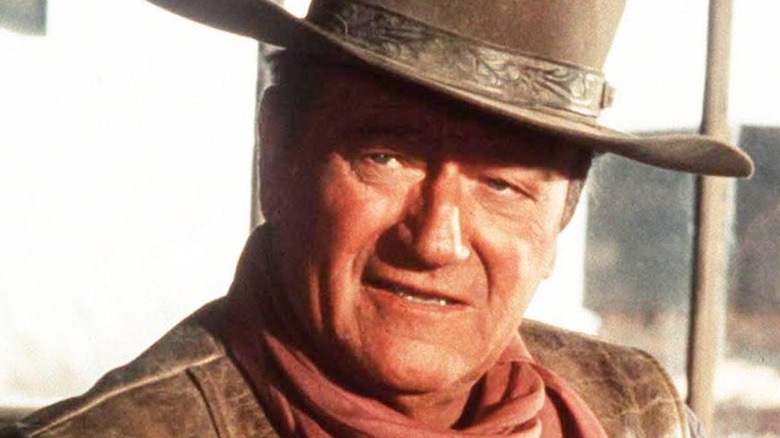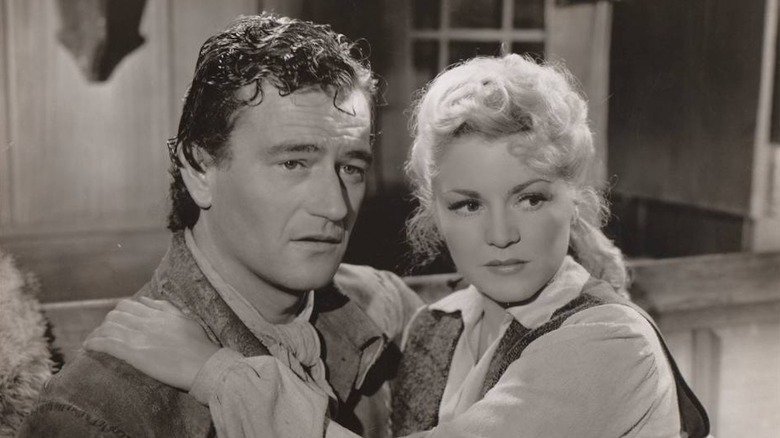A Western Flop With John Wayne Was Banned In The UK
1939 was the year that John Wayne broke out of Poverty Row Westerns and became a full-fledged movie star on the strength of his larger-than-life portrayal of the Ringo Kid in John Ford's "Stagecoach." The second Ford pushed in on Wayne twirling that Winchester rifle, the American Western went from being churn-and-burn programmers to the stuff of big-screen myth. The movies would never be the same.
Wayne had to work hard to get to this point, which, 86 years ago, meant making four or five movies a year to keep your name on the marquee. So while "Stagecoach" was a groundbreaking film, he still had other standard-issue oaters in the pipeline that had to get threaded through a projector before he got on with the business of making more A-list movies.
One of these movies was "Allegheny Uprising." Directed by Hollywood journeyman William A. Seiter and written by pulp plugger P.J. Wolfson, it was an RKO production and, thus, a step up from the Republic Westerns that earned Wayne his shot at stardom in Ford's film. "Allegheny Uprising" also reunited Wayne with his "Stagecoach" co-star Claire Trevor, who, still being a bigger name at the time, once again received top billing. Set in 1760, it's based on the Black Boys Rebellion, a conflict that found colonists fighting back against the British over their transport of "warlike goods." At 81 minutes, it wasn't meant to do more than obey the genre's conventions in a manner that pleased moviegoers. So why in the heck did it get banned in the United Kingdom?
Allegheny Uprising was considered a threat to the UK's World War II effort
"Allegheny Uprising" was released in the United States on November 10, 1939, and, despite Wayne and Trevor's success with "Stagecoach," bombed. Its critical reputation has remained constant over the last 86 years, so it's probably best left to Wayne and/or Trevor completists.
If "Allegheny Uprising" is worth discussing today, it's for getting barred from theaters in the UK during its initial release. At issue was its depiction of the British as the bad guys in a pre-Revolutionary War setting. While the British had made their peace with getting drop-kicked out of the continental United States, they weren't hot on exhibiting a film that made their military look like a bunch of losers while they were digging in against the Nazis without the involvement of their allies across the Atlantic. Pearl Harbor would change that two years later, but in 1939, the UK rightfully felt like the weight of the free world rested on its shoulders.
Ford's classic "Drums Along the Mohawk" was also prohibited for the same reason, but, hey, if the country's cultural leaders thought their war effort could be compromised by a motion picture, best to save civilization now and release the movie once the Axis powers had been defeated. Meanwhile, "Allegheny Uprising" is available to rent on a variety of streaming platforms. I'd prefer dialing up one of John Wayne's best movies instead.

